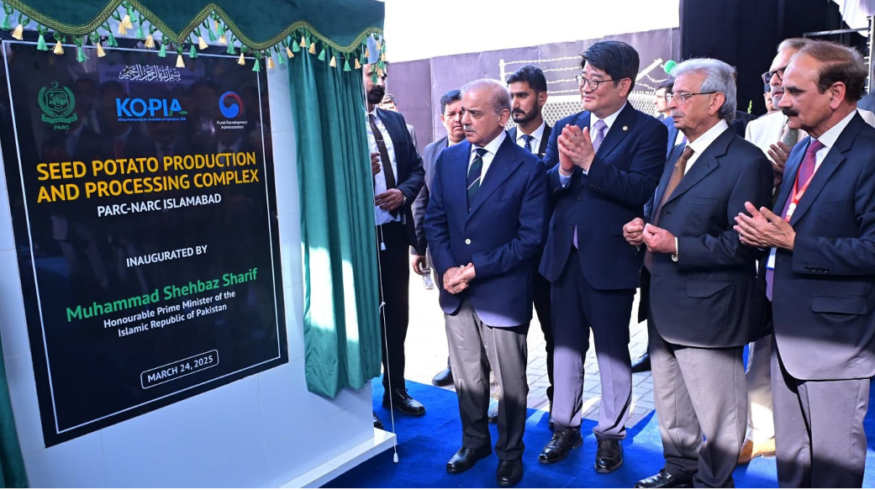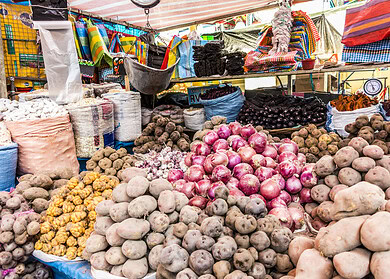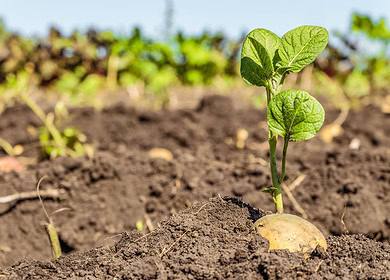South Korea aids Pakistan in establishing seed potato self-reliance

On March 24, Pakistan’s Prime Minister Shehbaz Sharif officially launched the ‘Seed Potato Production and Aeroponics Complex’ in Islamabad. Developed with the support of South Korea, the facility is designed to promote the domestic production of seed potatoes, leveraging advanced aeroponics technology. Situated within the National Agricultural Research Centre (NARC), the complex is a collaborative effort involving the Korea Partnership for Innovation in Agriculture (KOPIA) and the Pakistan Agricultural Research Council (PARC).
Prime Minister Sharif, addressing the inauguration, underscored the imperative to revitalize Pakistan’s agricultural sector. He highlighted the nation’s annual expenditure of $4.5 billion on oilseed imports as a critical drain on resources that could be redirected towards achieving agricultural self-sufficiency and boosting export capabilities. Sharif also emphasized the potential of agricultural machinery to improve productivity and advocated for increased local production through public-private partnerships.
Kwon Jaehan, the Administrator of the Rural Development Administration of South Korea, pointed out the ongoing agricultural collaborations between the two countries, including an exchange program involving wheat seeds from Pakistan and chili pepper seeds from Korea. He also announced new initiatives aimed at enhancing Pakistan’s livestock industry through the introduction of high-quality Korean cattle semen and superior forage crops.
This partnership seeks to transform Pakistan’s approach to seed potato production by improving efficiency, reducing post-harvest losses, and facilitating on-farm processing. These efforts are expected to bolster human capital development and generate significant employment opportunities in the region.
Despite having extensive potato cultivation areas totaling around 850,000 acres, Pakistan is heavily reliant on importing 6,000 to 12,000 tonnes of seed potatoes annually. The local production of seed potatoes suffers from quality issues, leading to economic burdens and forcing farmers to depend on expensive imports, affecting their yields and profitability.
Establishing the National Institute for Genomics and Advanced Biotechnology (NIGAB) at NARC, which is dedicated to research in plant, animal, and microbial biotechnology, marks a further step in strengthening the country’s agricultural research capabilities.
Enjoyed this story?
Every Monday, our subscribers get their hands on a digest of the most trending agriculture news. You can join them too!













Discussion0 comments